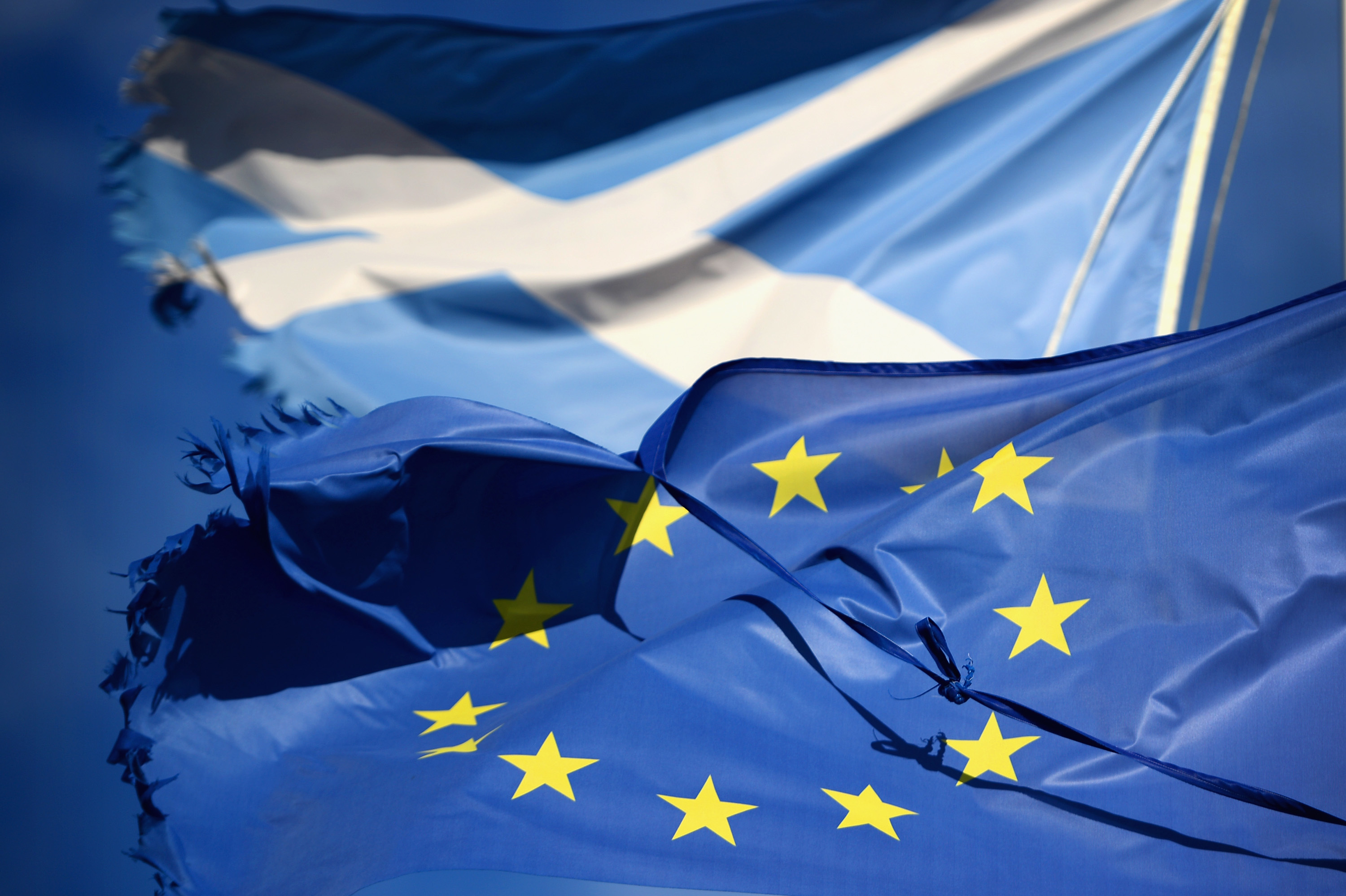There’s a war memorial wherever you go.
Often a conifer-shaped mound with names on a slab, sometimes a figure caught in bronze above a list of young men.
The stones tell of Scottish history and world history at once – of the connection between the young men of a village in the Mearns, perhaps and the schemes of dictators.
The point where a shot in Sarajevo can be heard in the closes of Dundee, or the speeches of Nuremberg ring loud among the spring bluebells of Aberfeldy.
Consider these men today, as you vote again, for the fourth time in 22 months, because this issue has history.
Elections to Westminster and Holyrood will come round again while the future of Scotland never goes away.
Leaving Europe is an end, a full stop when we only meant to draw breath.
We pivot on a moment of history: to stick with the direction we have travelled for 70 years or to find a new route.
If we choose to leave, we choose to abandon the work of seven decades.
Those who survived the war of 1939-1945 did great things.
They said the function of government wasn’t just to protect people in time of conflict but at all times – to use the wealth of society to provide services such as health, education and welfare.
They championed greater cooperation across the world.
The League of Nations became the United Nations, empires shrank in moral judgement, the ink of Europe’s borders blurred with cooperation.
And they put in motion a financial system which would unite people.
Lost the peace? Britain is the fifth biggest economy in the world, sits on the UN Security Council and determines the fate of wars (for good or bad). For 70 million people in a world of seven billion – some loss.
We have witnessed this. Our family stories all share a common arc, the tale of how we got richer, more confident and happier.
How our opportunities shifted from drudgery to a range of possibilities.
How our houses emptied of hand-me-downs to a churn of new things.
How the few grew to the many at universities or studying courses.
A period of economic growth unparalleled in human history, distributed further across class and geography than in any previous age.
It occurred when the people of Europe shifted their energies from national pride to human improvement.
Of the great changes, it is only the financial one which has failed.
It failed spectacularly and the cost was picked up by the people and that was wrong then and remains wrong – as damaging as any battle scar from a Bannockburn or Agincourt. However, it won’t be fixed by undoing the great work of the post-war generations.
The markets aren’t always right and our governments are wrong to be in thrall to them like devotees but that is not a constitutional fault.
We should be angry at the flawed banking system, the bankers, the politicians helplessly devoted to them – but not at humanity’s clumsy moves to cooperate.
The revolution that overcame Europe after 1945 has a long way to go yet. Our own domestic efforts at caring for all, distributing wealth fairly, educating everyone to fair level – far from done.
However, the failure has not been with the first great achievement – the caring state. Nor has it been in the union of nations.
The element which failed was the globalisation of money and the cult of markets – that’s the pillar of the modern world which crashed.
That’s the one which closes jobs, which drives migration, which pushes our retirement further back.
That’s the one which spurs us to hark back to an imagined age – to say “give me my country back” when what we mean is “give me some comfort in a changing world”. This is the great unfinished business, our generation’s challenge, to distribute wealth so people are not left behind and the poor don’t bear the brunt.
The barrage of misleading claims and the personality clashes of this campaign will be lost in time, just noise in the wind.
The talk of “blue on blue” and fear seem a bit silly when we look to the war memorial.
Each generation can only face the challenge ahead – can only do what’s right in their time. We can only be as good as our hearts will allow.
Those who faced real horror and fear were very good. We should at least try to be as optimistic as them.
The real memorials aren’t in stone but in our skins, our fortunate lives.
We are wealthy where so many are poor, educated where many are not and healthy far above the global average. All a product of our continent’s history, good and bad.
It remains our duty to protect that great advance and share it as far as possible.
So go again to the polling station and vote again and imagine ourselves as the people we would wish to be, acting for the greater good, as generations before have done.
